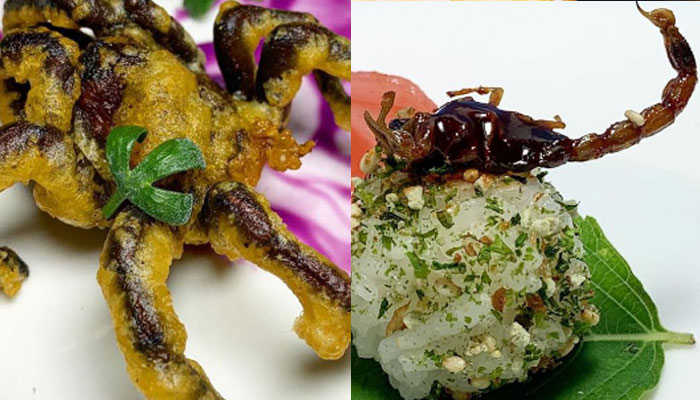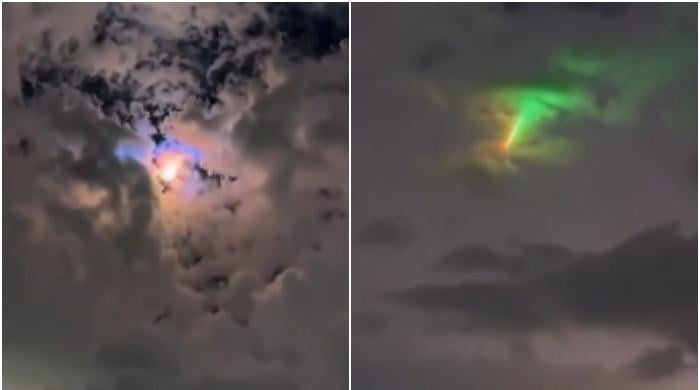Tarantula Pakora or Scorpion Manchurian: What would you like to eat for dinner?
After meatless Mondays, its time for black fly Fridays or Scorpion Sundays
August 19, 2023

Chef Joseph Yoon from the Brooklyn Bugs is determined to tantalise palates with offerings like Tarantula Pakora and Scorpion Manchurian. Defying conventions, he challenges diners to consider a new dimension of dining — insect recipes, CNN reported.
Chef Yoon, the executive director of Brooklyn Bugs, pioneers an edible insect movement that holds the promise of sustainable, nutrient-dense, and surprisingly delicious dining experiences.
“I absolutely love insects. The fact that they are so diverse, the fact that there are so many species of insects, the fact that we rely so heavily on insects for our own ecosystem and biodiversity is absolutely fascinating,” says Yoon.
Yoon's fascination with entomophagy, or insect consumption, began as an art project four years ago. Today, his mission revolves around reshaping perceptions about these creepy crawlies.
With more than 2,100 edible insect varieties globally, their flavours span nutty, citrusy, cheesy, and even coconutty. Yoon aims to present a vast array of tastes, textures, and culinary possibilities, inviting us to embrace insects as a culinary cornucopia.
Surprisingly, despite 2 billion people eating insects globally, the Western world grapples with disgust associated with this protein source.
As the global population inches toward 9 billion by 2050, the challenge of sustaining food production becomes ever more urgent.
Traditional sources are proving ecologically unsustainable, with the livestock industry contributing significantly to greenhouse gas emissions. Edible insects, however, offer a potential solution, requiring significantly less feed and generating fewer emissions.
Yoon's vision extends beyond culinary delight; he envisions edible insects as catalysts for change. By "normalising" their consumption, Yoon strives to shift Western attitudes, transforming hesitation into acceptance. Incorporating insects need not be daunting; they can seamlessly integrate into familiar dishes.
Cricket-infused fried rice or cricket powder-enhanced mac and cheese demonstrate Yoon's approach to making entomophagy accessible.
Yoon joins a lineage of insect advocates shaping Western perspectives. From Patrick Crowley's cricket-infused energy bars in 2012 to Canada's Next Millennium Farms, the journey towards insect consumption has gained momentum.
In Europe, the appetite for insect-derived products burgeons, with projections indicating 390 million consumers by 2030.
The trajectory toward embracing edible insects encompasses more than gastronomy—it is a sustainable response to an imminent food crisis. Yoon's message resonates: each individual can make a difference.
By indulging in insect-infused cuisine even once a week, we contribute to a more sustainable future, fostering a new chapter in culinary exploration and environmental responsibility.











